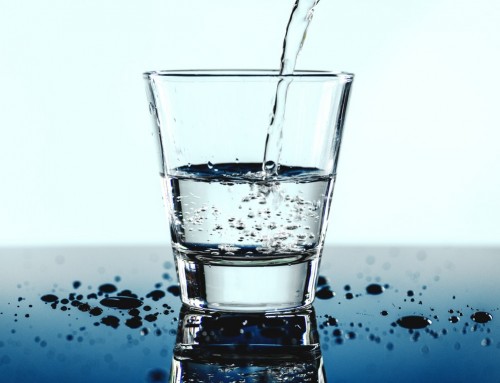Are you struggling to lose weight and find that diet and exercise simply aren’t enough?
Believe it or not, hormones and weight loss go hand in hand.
When your hormones are off, all sorts of trouble can occur, especially weight gain.
The good news about a hormone imbalance is that for the most part, it is a fixable problem and one that could be the missing piece of the puzzle when it comes to your lack of weight loss.
Figuring out if you have a hormonal imbalance and where the problem lies can seem overwhelming.
Not to worry. We’ve listed some of the most common hormone imbalances that could be affecting your weight and how to deal with them.
Inflammation
Inflammation is the enemy. It without a doubt means something is off or wrong inside and needs correcting.
Food and drink contribute greatly to inflammation. Have you ever woken up the morning after a few drinks feeling swollen and as though you’ve retained about a gallon of water? You have the alcohol to thank for that; one of the biggest causes of inflammation.
There are also inflammatory foods like those high in sodium or sugar. Nightshades, like mushrooms and eggplant, are also found to be inflammatory so if this is an issue you are dealing with you may consider cutting back or removing them from your diet altogether to decrease inflammation.
You’re probably asking what inflammation has to do with your hormones? Well, a lot. Inflammation in the body can affect hormones that regulate our food intake.
A hormone like insulin helps us to regulate our sugar intake and process it in our bodies. This ability to self-regulate can be thwarted by inflammation.
Another hormone greatly affected by inflammation is Leptin. This is the hormone that alerts us as to when we are full and should stop eating. If it’s affected by inflammation, the same self-regulation aspect is thrown off, causing us to eat and drink more than our bodies need.
Cortisol
Otherwise known as the “stress hormone” cortisol can have a direct correlation to hormones and weight loss.
When our body is stressed, we produce more cortisol in order to manage that stress. Typically, once the stress is over, our cortisol level will return to normal.
However, for those who are chronically stressed, our bodies can continue to produce more cortisol than normal in order to cope. Those with high levels of cortisol have been known to experience excessive weight gain, especially around the midsection.
Additional weight as a result of high cortisol is known as visceral fat, a belly fat the lives deep under the muscles, near the organs and can be very dangerous if not addressed or treated.
High levels of cortisol can also affect blood pressure and our ability to efficiently metabolize the food we eat.
There are ways to manage your stress and therefore balance your hormone levels. Try a daily meditation with an easy-to-use app like Insight Timer. Take a five-minute break during the day to reset, stretch your body and release some tension.
Get a massage or have a good laugh with friends or by watching your favorite show. Exercise is a great stress reliever but it might not be enough to slow down your cortisol production so try incorporating some of these other techniques in addition to your daily workout for better results.
Serotonin
Another connection between hormones and weight loss is serotonin. This particular hormone has a lot to do with our appetite; guiding how much we eat and how often.
Similarly to cortisol, serotonin is greatly affected by stress. However, with more stress comes lower levels of serotonin. As this hormone level decreases, we may find yourself craving unhealthy foods like refined sugars and empty carbohydrates.
Some indicators you may be low on serotonin other than weight gain include feelings of depression, migraines, and irregular body temperature. If you believe your serotonin levels are low, there are several ways to improve it.
Be sure you are getting enough vitamin B6. This could mean taking a supplement or making an effort to eat more vitamin B rich foods like spinach and fatty fish. Fermented foods and drinks can also help boost this hormone and slow sugar cravings.
It’s also important to be sure you’re getting enough exercise; one of the easiest ways to boost serotonin levels in the brain and prevent those cravings from getting the best of you.
Estrogen
This one is especially important for anyone going through menopause. Estrogen and progesterone are the two most common hormones that are affected during this time and can result in weight gain.
You may have heard that during menopause, your estrogen levels are decreasing. So you may be wondering why estrogen would cause weight gain if you have less of it in your body.
The answer is that while your estrogen is decreasing, so is your progesterone. If your progesterone levels decrease more rapidly than your estrogen levels, you can still be left with high estrogen, causing weight gain.
Try taking a test as offered by Core Medical Group to find out if your estrogen levels are too high during menopause. This can be easily treated with hormone balancing medication or with natural remedies like taking Wild Yam supplements or decreasing your sugar intake and increasing your exercise routine.
Increasing your fiber intake through supplements or vegetables is a great way to prevent your estrogen levels from exceeding your progesterone levels.
Balance Your Hormones and Weight Loss Will Follow!
If you’re practicing a healthy lifestyle and working hard to lose weight, lack of results can be frustrating and make us want to give up.
But there’s hope! An imbalance of one of the above hormones could be your culprit. It’s a fixable problem and when mixed with the right diet and exercise will result in the changes to your body you’ve been hoping to see.
We want to help you get in shape and feel your best, and hormones and weight loss isn’t the only way! Schedule a consultation and gym tour to see why we’re the right place to help you achieve your fitness goals and get an individualized plan.











